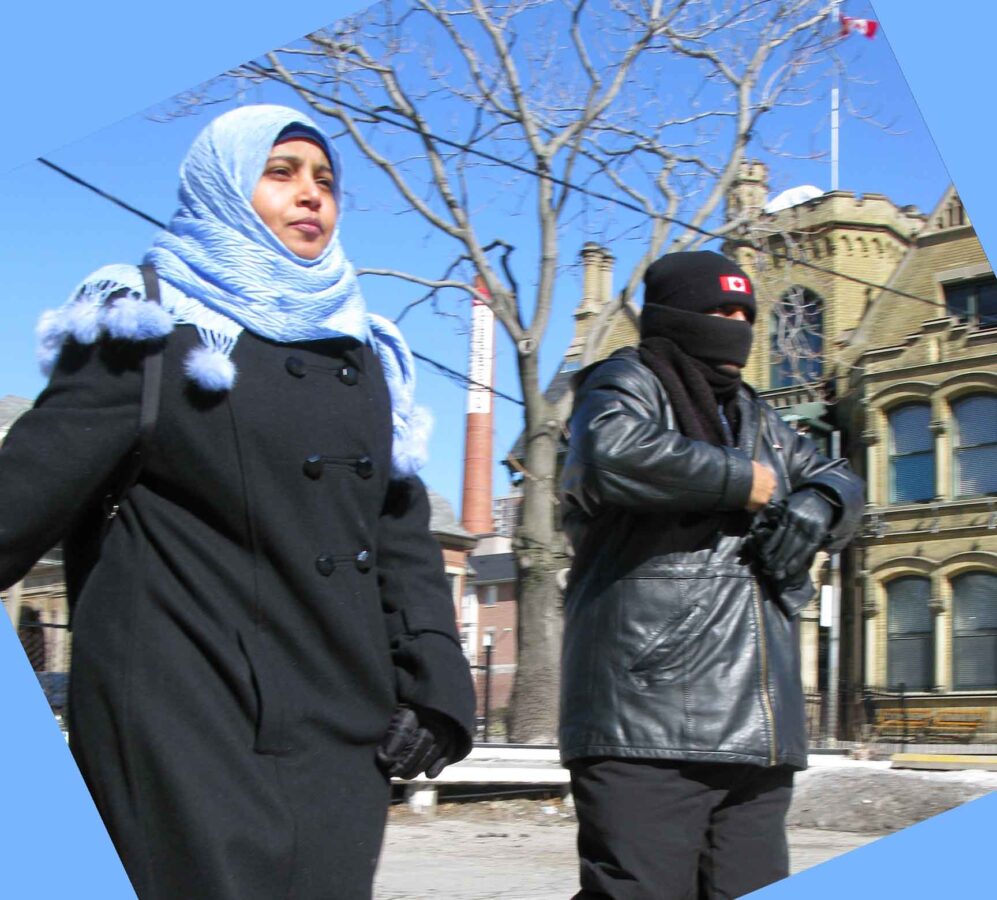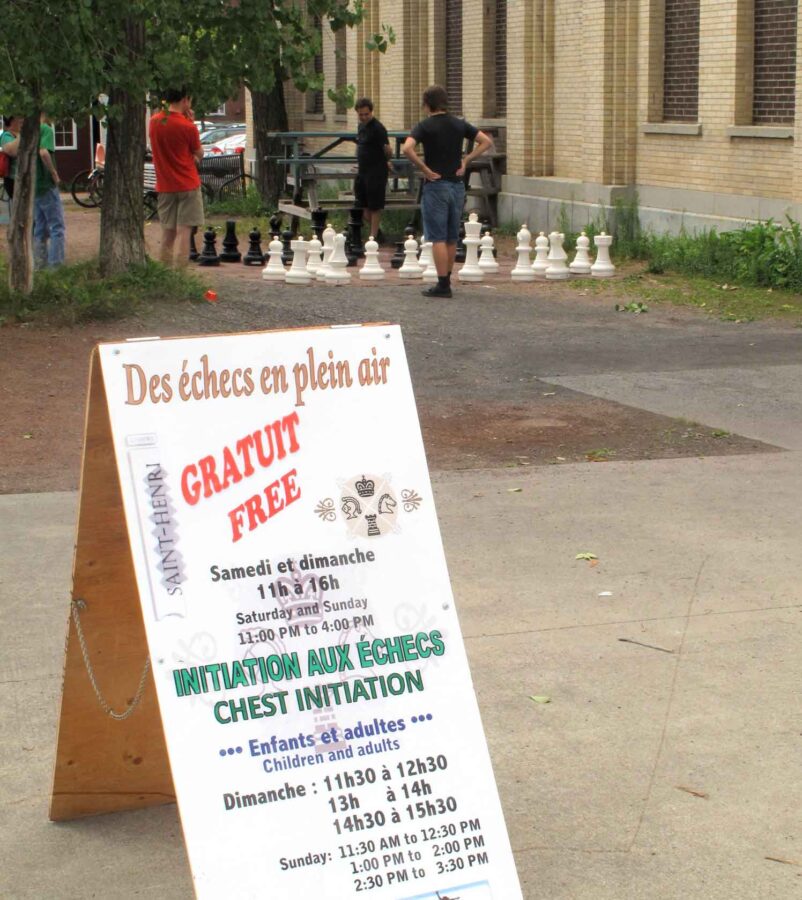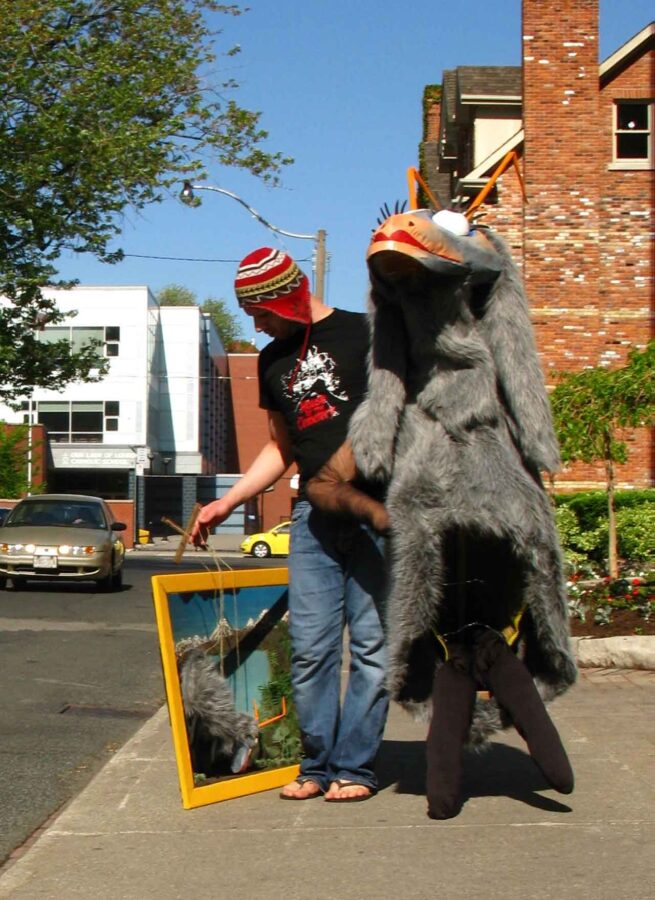The two Canadian men are made up with the whitened face of classic Japanese performance arts, looking like bearded geisha. Reconstructing the traditional images allows them to taunt gender roles while showing little respect for classical arts. Meanwhile, the Japanese tourists posing with them are flashing peace signs – a gesture borrowed from the West that became an almost reflexive action in Japanese snapshots after the war, much the way North Americans break into a grin when a camera is pointed at them.
The meaning of an image, of a word or gesture, changes when it is brought into a different culture. Old pictures in new frames carry altered messages; transplants grow new roots.
A head covering can be controversial – or not – depending on the label we put on it and how familiar it might be.

Meaning can twist itself in knots as it passes from one language to another, as people searching for beginner’s chess classes in Montréal’s Little Burgundy might have discovered. To the inner ear of a French reader, a final silent t is needed so that “ches” does not sound like “shay” (like chez or ces).

Sometimes people are reluctant to hear the Word, as this Toronto street preacher was reminded on Pride weekend…

… while some things are beyond translation.








